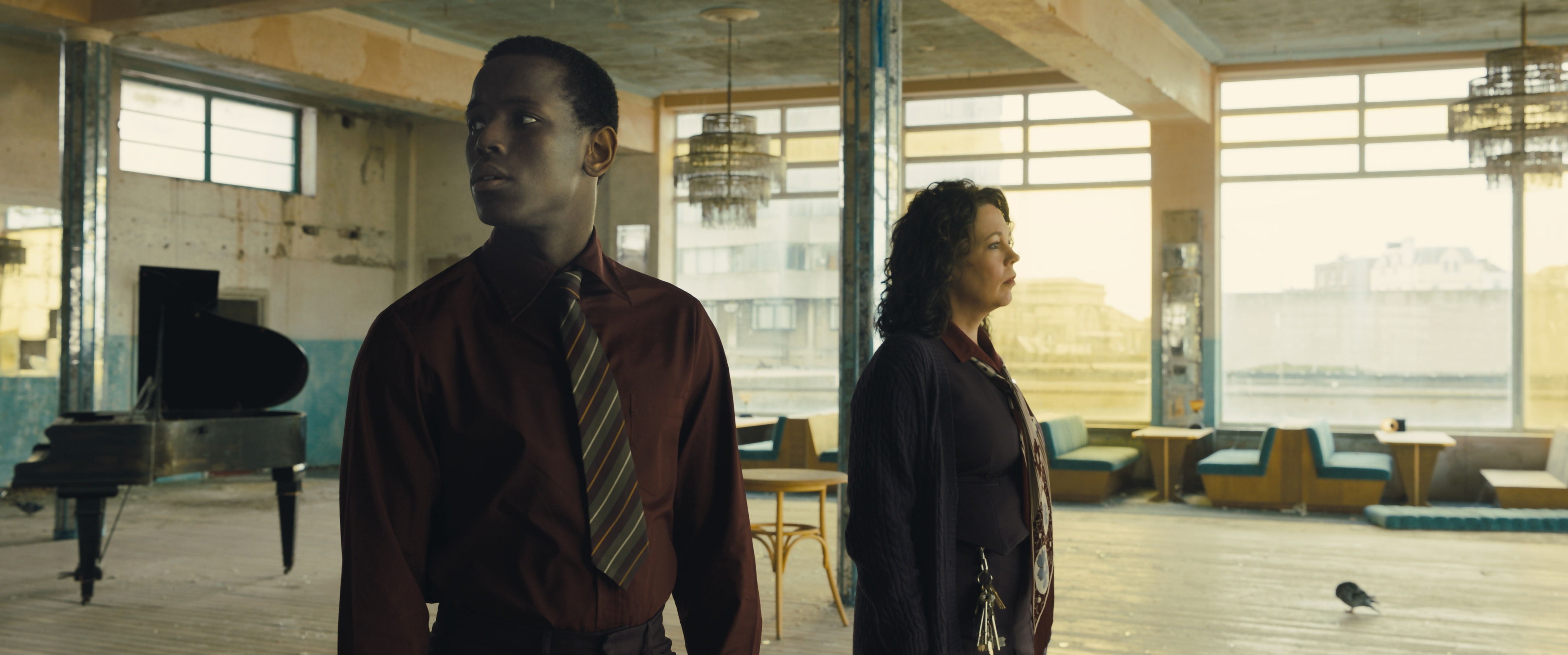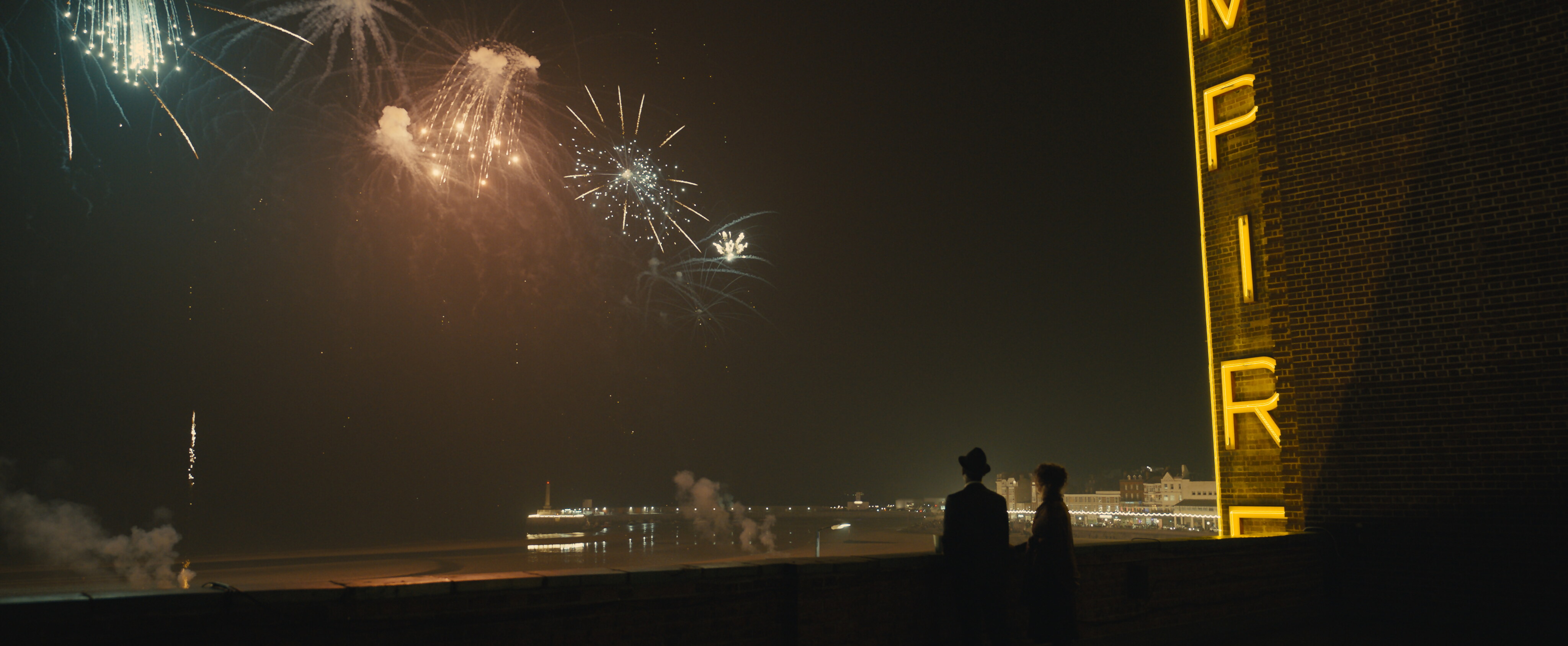
★★★☆☆
Empire of Light comes with a lot of expectations. Sam Mendes is one of Britain’s most prolific directors, especially after his stellar 1917 which won awards left, right and centre in early 2020. Empire of Light also has a particularly handsome cast, consisting of Olivia Colman, Colin Firth and a BAFTA Rising Star winner Micheal Ward.
Unfortunately, Empire of Light is one of the most emotionally confusing films in recent memory. It starts as a sweet forbidden romance and develops into an exploration of racial tensions in 1980s Britain, as well as severe mental health issues and a love of cinema. Tonally, this film never finds its footing and never finds whose story this is.
Hilary (Colman) is the duty manager in a cinema in Margate. She’s lonely, but her boss (Colin Firth) often requests her in his office to give him a handjob. When new starter Stephen (Ward) strikes up a friendship and then a romance with Hilary, both are caught in a whirlwind of emotions.

Credit: Searchlight Pictures
Colman is, once again, great. She has such a natural, commanding presence but in Empire of Light, there is also a gentleness that she hasn’t been allowed to portray as often. Her Hilary is so woefully, miserably lonely and blue, and as soon as Stephen enters her life and the two begin a secret affair in the closed upstairs part of the cinema, she lights up. Suddenly, she’s full of joy, but of course, with Michael being considerably younger and Black, it comes with unexpected issues.
If Empire of Light stopped here, it would have been a beautiful, beautiful film. A sweet, sentimental romance with a side order of cinema. But Mendes, who both writes and directs here, pushes the envelope to include more themes that range from pointless to downright problematic.
The depiction of mental health, also present in The Son, has its ups and downs. It’s never specified what Hilary suffers from, and although someone mentions schizophrenia, Hilary’s symptoms seem to line up more with bipolar disorder than anything else. While Colman evokes sympathy, Mendes’ direction never assigns any empathy her way. Perhaps simply because this subplot is helplessly rushed.
And then there’s the race element. It’s a powerful story but not in any way a nuanced one. It’s triggering and traumatising and never really offers insight into the characters. It also doesn’t add anything to the plot or the story Mendes wants to tell. Roger Deakins’ cinematography and the score by Trent Reznor and Atticus Ross thankfully lend a more subtle, gentle beauty to the film, as does Mark Tildesley’s production design.
Thankfully, the supporting cast are in great form around Colman and Ward. As the cinema’s projectionist, Toby Jones is in particularly good form, and Colin Firth’s small role is a chance for him to let loose. Mendes’ script is by far the weakest element here, but the cast elevates as much of it as they can.
But they can’t save Empire of Light. It simply doesn’t have enough meat on its bones. Everything is shallow. Or maybe it has a bit too much meat, but it’s all from a sickly cow, so it’s tough and chewy. Despite some interesting themes, Empire of Light ends up disappointing. This would have worked better as a limited series in which these themes would have had room to develop and breathe.
Empire of Light screened at this year’s BFI London Film Festival and is in UK cinemas January 9, 2023.



